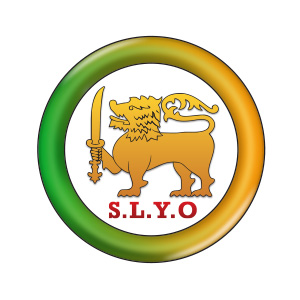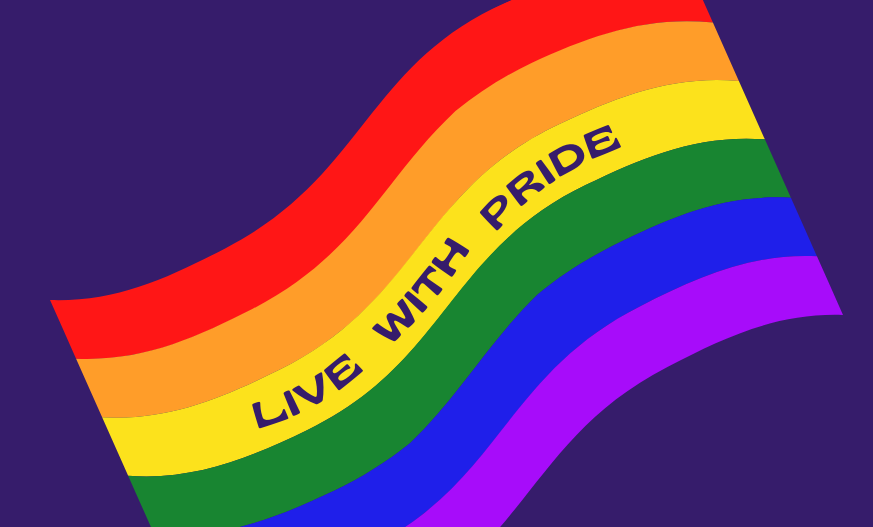Challenging the two dimensional depictions of LGBTQ+ people.
Introduction
It is amazing growing global discussion about queer issues and LGBTQ+ rights. One way in which this is done is through inviting experts in to have discussions about queer issues. While this is extremely useful as that person does have a degree of expertise in their field, you do not necessarily have to be an expert to have an opinion, so long as your opinion is respectful.
There are many misconceptions when it comes to the LGBTQ+ community, one of the most significant being the idea that all queer people share similar views on issues faced by the community. When SLYO reached out to QueerAgendaSL (QASL) wanting to gain some insight into the LGBTQ+ community, we thought it would be best to get as many queer voices as possible.
As such, QASL decided to conduct a Zoom meeting with people of varying gender identities and sexual orientations, to ask them for their opinions around rather controversial LGBTQ+ issues. QASL’s intention was not to convince people to change their stance, but rather to point out that queer people may have varying opinions, based on their experiences or beliefs. Some of the people who were involved in this discussion included:
- Jane doe(X): Jane Doe is 21 years old, and has lived in Sri Lanka for about 7-8 years.
- Sriyal: Sriyal Nilanka is a person with HIV and the majority of his work revolves around HIV and advocacy.
- Rosanna: Rosanna Flamer-Caldera runs EQUALGROUND(EG) and has been doing so since its inception 17 years ago. It is also her 21st year of advocacy for LGBTQ+ rights in Sri Lanka and around the globe.
- Thilina: Thilina Anoma is a 23 year old trans man, living in Sri Lanka, who is documenting his journey on Instagram.
- Arun: Arun Kumaris from Singapore and started a Singaporean LGBTQ+ organisation called “The Purple Alliance”. He also runs the National HIV program in Singapore.
- Andre: Andre D’Rozario is a Singaporean Eurasian cis gay man studying psychology, and has a background in art.
To demonstrate how people in the LGBTQ+ community may have differing opinions about certain topics based on their personal experiences or beliefs, we started off with a bit of a light-hearted question:
QASL: What are your thoughts on pineapple on Pizza?
Rosanna: I have gluten intolerance so I can’t eat pizza in general. Pineapple is really nice as a fruit, but I don’t think it belongs on Pizza.
Andre: I think that Pineapple as a fruit can be complimented by a lot of savoury flavours as well. I think that Pizza is just bread, it’s just a base, so I think Pineapple on Pizza works!
Thilina: I have no problems with pineapple on Pizza, it’s basically just Pizza so I don’t really care what is on it.
Sriyal: It’s not my favourite but I would order Hawaiian pizza.
Arun: I don’t think that pineapple works well on Pizza, I just feel like it ruins the taste!
(X) Jane Doe: I’m not the biggest fan of pineapple in general, so I don’t really like it on Pizza.
Topic: Queer and Religion
Sri Lanka is home to a wide range of religions. While one of the most amazing aspects of Sri Lankan culture is our religious history, some queer people tend to stray away from their religion as a result of feeling rejected. In our opinion, this stems from the manner in which practitioners preach a certain religion, and interpret religious literature. It is important to keep in mind that being queer does not intrinsically mean that you should abandon your faith. Instead, consider seeking out practitioners who share similar views to you.
QASL: Do you think it’s possible to be both queer and religious?
Sriyal: Yes but I think it’s difficult when someone has a faith or a background that has treated queer people unreasonably or used religion to justify treating queer people badly.
Rosanna: Over the last year and a half, I’ve lived with somebody who has her faith but also acknowledges who she is and balances that beautifully. I think that one could do that if one was strong enough to do it. But for me, growing up a Catholic and attending Catholic school was extremely difficult. Personally, I also believe that religion has been used to create a lot of conflict in this world. Religion should be something that preaches that you should have integrity, honesty, compassion and empathy.
(X) Jane Doe: I live in a predominantly Muslim country and was born into a Muslim family. I do follow the religion to an extent. In my opinion, religion is supposed to bring you peace, make you a kinder and more considerate person. During Pride month, we’re supposed to celebrate our lives, talk about hardships we’re going through. For the past 13 days, there has been a lot of harassment here because of the fragmented relationship between Islam and being queer.
Andre – I was also raised Catholic and chose to step away from it. Not really because I’m gay, but similar to Rosanna, it just didn’t make sense to me because many people who demonstrated religion in my life – not my family, but people in Sunday school – didn’t embody what I thought religion meant. I think if people want to, they can balance it, but it’s something that they are stronger than me in doing. I have seen some people who have tried to do so continuously struggle with internal conflict due to a lack of acceptance and feeling inferior. I think people who manage to keep their faith and religion intact probably have to step away from it and make the active choice of coming back. I think that’s something uncommon and should be celebrated.
Thilina : Apart from some religions that say homosexuality is a crime, I’m not really sure how they both overlap. Religion usually touches on the relationships between men and women but fails to touch on other sexual orientations. I also think that certain religious leaders misinterpret certain religous texts to mean that homosexuality is a crime.
Arun: I think it’s possible for people to be queer and religious. I do know alot of very religious queer folks that find alot of peace in their religion and its has helped alot when it came to even accepting themselves. However, I also know alot of people who have been forced into conversion therapy that has caused them alot of trauma. I think in this case, it’s definitely very debatable but at the same time it is up to the individual. Depending on what a person believes, it’s up to them how they want to move forward in life.
TOPIC: Gender stereotypes
This question is rooted in the concept of Gender socialisation, whereby societally defined gender norms are enforced on children. This is typically done through passive teaching such as telling a young boy that “boys don’t wear pink”, or telling a girl that “girls shouldn’t wear shorts”. Gender socialisation has implications on society as a whole as it reinforces traditional gender roles. Traditional gender roles for women suggest that they are instinctively nurturing, and as such, will act in an appropriate manner. A woman might adopt the responsibility of a housewife, rather than opting for employment outside of the home. Men, on the other hand, are typically assumed to be leaders as they support their family financially, and spearhead important family decisions.
QASL: Should children be raised following rigid gender stereotypes?
Sriyal: I don’t think gender stereotypes should be enforced because there shouldn’t be any expectations from the child. I think that children should be given a certain level or choice and structure as well. I think that ultimately, we should not force something in children if they clearly do not identify with it.
Arun: I would say that children shouldn’t be raised following gender stereotypes. My brother is raising his daughter in a gender neutral environment to allow her to have the most options in life. I think that enforcing traditional gender norms is a really damaging practice.
Andre: I think that there is a certain level of sexism at play. I think that we are seeing more girls being socialised into stereotypical male interests, but I think it is difficult for boys to be socialised into what are considered stereotypically feminine traits. I think there needs to be some kind of balance and we need to remove the negative attachment to femininity. I think there needs to be more of a neutrality with how we associate behaviours and things around us with gender, and I think from there, kids will be seen as equals.
Rosanna: My parents decided to let us make our own choices. Considering that this was years ago, I think my parents were ahead of their time – they allowed us to be ourselves regardless. It’s unfortunate that in Sri Lanka there is so much patriarchy that even women enforce this on their children, it projects a number of unhealthy stereotypes on children. I think that these things need to be broken down, and and I think the Queer community is meant to break it down. We do not conform to gender stereotypes, so I think we need to be the change we want to see in society.
Thilina: I think the main issue with gender stereotypes is that there are a lot of negative associations related to fashion and how people present themselves. I think that for women, you can present masculine and feminine, but there seems to be a problem when men express themselves in a more feminine manner.
(X) Jane Doe: I think that anyone should be able to express themselves however they want. If we take clothing into consideration, an item of clothing has no meaning. I think that we need to prioritise the happiness of the child.
Sachini: I think it’s important to prioritise inclusivity in the way that a child is allowed to express themselves. The first few years for a child determines how they will develop and it can even affect their career, because parents may push children into fields that they do not identify with. I think that everyone should just have the ability to be kids, and have the freedom to explore their curiosity and do whatever they would like to.
TOPIC: Queer Labels
This next question was prompted by the popular debate on the difference between ‘pansexuality’ and ‘bisexuality’. Using specific labels to define ourselves can be difficult if we feel that it does not accurately describe us. As a result, queer terminology has grown, and continues to grow, as people find terms that fit them better. To our heterosexual allies, some of these terms can seem confusing, simply because there are so many. However, there is a general consensus that using labels can bring power to members of the community. LGBTQ+ people have even reclaimed certain labels that have historically been used as slurs (such as the word “queer”). Ultimately, using labels to define ourselves can help us create a sense of identity.
QASL: Should queer labels exist? Should people have to define themselves?
Andre: Using the English language to define all of our identities is a bit difficult. A lot of identities have existed in cultures across the world, we see that varying cultures define genders differently. Labels can be a bit restrictive and have connotations of negative associations. For me to say I’m gay, people may just assume I am extremely famboyant, and I do have some stereotypically feminine interests such as Sewing, cooking, baking, but I also do enjoy things like rock climbing and rollerblading. This is where I view the label of being gay/ a man being restrictive.
Thilina: I think that when people use labels, they get an image of what they expect the person to look like. People don’t seem to understand the difference between gender, gender identity and gender expression. The number of labels are increasing but that doesn’t mean anything if people aren’t educated on what these terms mean. Cisgender Heterosexual don’t know that they are cisgender or heterosexual, they just assume that to be “normal”. I think labels are good to define ourselves, but we should respect individuality before any label.
Sriyal: Acknowledging the fact that labels have these restrictions I still want to advocate for it. It helps talk about specific issues that parts of our community may go through, it helps with understanding the intersectionality of issues. I don’t think the problem is with the labels, I think the problem is with the people who resort to stereotypes and use that to invalidate people. Coming from someone who came out fairly early, there is a sense of pride in the labels we take on, it shapes who we are and gives us a specific type of voice and also gives us an identity.
(X) Jane Doe: My opinion comes from my own personal experiences, for those who don’t know who they are and learn these terms and feel like they identify with them, labels can be useful. – but there are some people who are still figuring themselves out and might have to come out a few times because the “label” they identify with changes over the course of their lives.
Arun: I think labels are good for some people to help them define themselves, but for some people like myself, labels seem a bit restrictive. One option is to identify as “queer” which is an umbrella term (which is how I identify), but if they wanted to use a more specific term, they are able to do that as well.
Sachini (President of SLYO, the Sri Lankan Chapter): I think that from the point of view of an Ally, labels can be helpful to explain things to people who aren’t aware of queer issues. People tend to find things easier to digest and understand information when we use certain labels. However, after hearing your opinions I’m beginning to understand the problem, labels can be restrictive to queer people who don’t have a linear journey with their sexual orientation or gender identity. People may feel stuck with the labels they identify with.
Topic: Young trans children being able to transition
Majority of the participants who were cisgender avoided sharing their opinion on this question as they felt could not comment due to a lack of experience. While this is a respectful approach to engaging in a conversation, being cisgender does not necessarily mean that you will not need to engage in trans issues. For example, cisgender people may have a child who may identify as transgender, in which case, this question may become a reality.
QASL: Should trans Children be allowed to transition socially, and physically?
Thilina: I knew at a young age I had an issue with my gender identity, I knew I was a boy but I wasn’t even aware of female anatomy until I reached puberty and started going through changes. I didn’t know what was going on because we aren’t taught this in school. Dysphoria comes with how society defines what is “female” and “male”. Trans kids at a very young age realize that something doesn’t align properly inside them. But they don’t talk about it because there aren’t conversations happening about it, especially in Sri Lanka. I was 17 when I learned the word ‘transgender’. Trans kids usually feel like we don’t have anyone to talk to, like counselors and guardians. We don’t have anyone to confide in. I don’t think they should be allowed to transition until they have the consent of a counsellor or a therapist, who they’ve been consulting for a while. If a child feels a misalignment they should have a conversation with someone, they should discuss it. There should be at least a 6 month period for a transkid to discuss, to make sure they understand and are prepared for it. I had friends in school that were tomboys, they had a very masculine expression. If they had the chance then, I’m sure they would have transitioned with me, but they now realise they simply have a masculine expression, and don’t identify as male. I’ve been on Testosterone for just 6 months now, and I’m having a hard time as an adult. So teenagers might have it harder. While I still wish I would’ve transitioned much earlier, they should have a discussion, they shouldn’t be able to decide by themselves. They should get consent from someone.
Rosanna: I agree. The thing about transitioning, specifically transmasculine people(Those assigned female at birth, but later transition), since there is so much homophobia in SL, a lot of butch lesbians feel they need to transition to have a relationship with a woman. That is why I agree that one has to go through really good psychiatric evaluation, going into the whys and “what for”s before deciding to transition. Once you start you’re putting your body through so much trauma. Most transgender people in SL dont have the means to transition physically other than getting basic surgeries done. There’s no phalloplasty available here and things like that. It’s a huge decision. Nobody should go through the pain and trauma of surgeries and transitioning unless they are 100% that they really want it. Sri Lanka has a certification process which unfortunately pushes people to transition. EG was against it and tried to advise the human rights commission. They took that advice abroad, but the ministry of health didn’t agree. It forces trans people to start hormone therapy or go towards transitioning physically. All you should need to do is identify as transgender and be given that certification. You shouldn’t have to physically transition.The older you get the wiser you get, I agree there should be some kind of parental consent for doing surgeries or going into psychotherapy. Unfortunately parents in Sri Lanka have no idea what this is about so they aren’t going to consent. There’s a story of a little girl, who was born a male but her parents knew by the time she was 5 or 6 years old she was transgender and treated her as such. Allowed her to wear her own clothes, makeup, everything. By the time they were asked if the child will be taking hormone blockers etc, they said, ‘Of course, we’re determined that she gets the best treatment and is happy with who she is and what she is.’ That kind of stuff does not take place here that often. I can’t think of any one person that has given me positive feedback about that. It’s a life changing thing and yes one needs to be a little bit more careful and fully informed before going into something like that.
Thilina: Just to add on, saying that a medical transition is not necessary, can be very harmful for the trans community. I agree that gender identity is always there regardless of the transition but as a trans individual I can say for some trans people a medical transition is a must. It’s life saving actually. Because that’s what gives us a trans identity in the first place. We need to resolve our gender dysphoria in whatever method of transition we choose.
Sriyal: I dont think it’s something for me to talk about? Cause it’s not my experience and I cannot speak for the idea. But I do agree with Rosanna on the matter that parents need to be educated regardless. So on that I agree but I cannot comment further.
Thilina also added this during the discussion: I’m against the use of the terms ‘female-to-male’ and ‘male-to-female’. It gives people the wrong idea, they get into their head that this person was female but now is transitioning into being a male, but the case is that they always felt they were a male. The terminology is one reason for the misconceptions that surround the trans community. Instead, we can use ‘transmasculine’ and ‘transfeminine’. Also the use of the words ‘transgender’, or ‘transgenders’ as a noun is dehumanizing. When you say that, it sounds like it is the only thing about us.
Note: We did not obtain responses from all participants for this question as many people shared Sriyal’s opinion, and felt uncomfortable speaking on this topic.
Conclusion
As shown in the answers from the participants, everyone’s opinions did vary to some degree, on things as trivial as pineapple on pizza, to more pressing conversations, like the use of labels within the community. The responses we received for each question were widely varied and everyone provided different justifications for their opinions, when they felt comfortable voicing them. This reinforces our claim that the LGBTQ+ community is extremely diverse, and it is important to keep in mind that all queer voices are valid, as long as they are respectful. What we hope you take away from this discussion is that everyone is allowed to have their own opinions, but it is important to not silence the voices of those most affected by the issues. Additionally it is important to remember that more often than not, one person does not speak for everyone in a community.
About TheQueerAgendaSL
The Queer Agenda Sri Lanka is a volunteer-based initiative devoted to promoting LGBTQ+ rights in Sri Lanka. Our immediate objective is to initiate conversations and educate people on issues on intersectional queer issues within Sri Lanka.
You can find us on
Facebook – The Queer Agenda Sri Lanka
Instagram – @thequeeragenda.sl
Or email us at [email protected]








